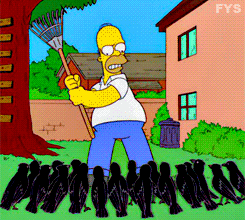Book Review: "Black Sun" by Rebecca Roanhorse
4.5/5
stars
*Spoiler alert!*
“A god will returnWhen the earth and sky convergeUnder the black sun”
I thoroughly enjoyed Black Sun, the first in fantasy
series “Between Earth and Sky” by Rebecca Roanhorse. The book blends a mix of
pre-Colombian American (think Aztec, Mayan, etc.) and Polynesian culture and
myth and has exquisite world-building, characters, political dynamics, and
LGBTQ representation. Perhaps this is controversial in some corners, but I
think this book should have won in the Goodreads Choice Awards under the fantasy category for its original setting, characters, and mythology-based epic.
The “Black Sun” of the title references a convergence of the
Sun, Moon, and Earth (a solar eclipse), which happens to be taking place during
the normally joyful celebration of winter solstice. Where the Sun is reborn after
a long, dark winter.
The religious elites of the Celestial Tower, studiers of the
stars, headed by Sun Priest, Naranpa, are keen for this winter solstice
celebration to go well. Naranpa wishes to secure her power as the first woman
to hold the Sun Priest position and believes the Celestial Tower can better
serve the people and perhaps atone for the Knight of Knives. But to enact any
reforms, she has to stay in her position.
The Knight of Knives was a Celestial Tower-sanctioned massacre
of the Carrion Crow tribe, the massacre’s trauma handed down through subsequent
generations. The Odohaa, cultists among the Crows, a vocal minority, never have
lost faith that the Crow God will be reincarnated and take revenge on their behalf
against those who harmed them. However, they’ve grown more practical over time,
and mean to take matters in their own hands, returned god or no.
The Odohaa are encouraged by a series of attempted
assassinations against the Sun Priest and talk grows of taking up arms
themselves when the matron of their clan dies under mysterious circumstances. This
is where the perspective of the matron’s son, Okoa, comes in.
Both Naranpa and Okoa alternate the events on land that seem
to be spiraling out of control and those on all sides trying to salvage a very
tense situation.
“‘Kiutue certainly left me a mess,’” she murmured. “‘The Sun Priest weakened, the cultists empowered, the societies at odds. But even he could not have foreseen this.’”
While all this is happening on land, a foreigner named Serapio is sailing across the Crescent Sea to Tova. Xiala, a Teek captain, is commissioned by a wealthy patron to deliver
Serapio to the city of Tova by the winter solstice. She and her crew don’t know
much at first about Serapio, who is the human vessel of the Crow God’s power, and is set to clash with the Sun Priest when the sun is at its weakest (the eclipse). He just seems like a blind, eccentric Odohaa cultist until they learn better.
I enjoyed the dynamic that developed between Xiala and
Serapio, as both experienced childhoods of isolation, abuse, and abandonment.
Xiala’s an exiled Teek with the power to calm the seas with her Song, while
Serapio spent his childhood learning to see the world without his eyes at the
hands of some very brutal tutors. I will admit that I enjoyed their POV chapters
more than the other two characters (though I like them too), because of their
slow-burn relationship and the nuanced exploration of destiny and good versus
evil.
What happens when Xiala and Serapio get to Tova on the pivotal
winter solstice? What of the epic confrontation between Sun God and Crow God? Ha,
I’m not telling you! Do yourselves a favor and just read Black Sun. Experience
this thrill ride yourself!
In the meantime, I’ll be reading the next book in the
series, Fevered Star.
Happy reading!
--BookOwl







Comments
Post a Comment